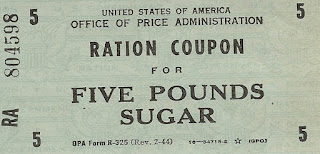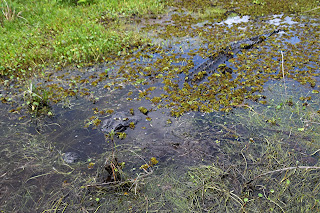My An Arkie's Faith column from the May 25, 2022, issue of The Polk County Pulse.
On December 7, 1941, Japanese forces staged a surprise attack on the American naval fleet at Pearl Harbor, Hawaii. Japanese planes sank or damaged 18 warships and destroyed 164 aircraft in a two-hour surprise attack. Over 2,400 servicemen and civilians lost their lives. The next day, the United States Congress declared war, and everyday life across the country changed.
Candy and sweets were in short supply. In early 1942, the U.S. government established a rationing program that set limits on the amount of gas, food, and clothing each person could purchase. Families were issued ration stamps that were used to buy their allotment of everything from meat, sugar, fat, butter, vegetables and fruit, to gas, tires, clothing, and fuel oil. Sugar became the first food item to be rationed. Wholesalers, retailers, bakeries, and industrial users of sugar were registered for sugar ration books in April 1942.
My Grandpa Lawry had a sweet tooth. Knowing him and his love for sweets, I can only imagine how hard sugar rationing was on him. But even with the wartime rationing, he would manage to bring home candy for his kids every paycheck. Oh, how they looked forward to the days when they knew there would be candy.
When my Grandpa would come home with his precious bag of candy, 13-year-old Opal was in charge of carefully dividing the spoils. The most common candy that Grandpa could purchase was Boston Baked Beans. Opal would conscientiously count out three equal piles, one piece at a time. Bobby and Delbert, aged 5 and 10, would quickly eat their small portion of the candy, but Opal would save hers for later. When she had candy left, and her brothers didn't, she would share her part with them.
In February 2020, I attended my Aunt Opal's memorial service in Ooltewah, Tennessee. During the ceremony, my Daddy told the story of Opal sharing her candy. His voice cracked with emotion as he remembered her kindness and thoughtfulness. Person after person talked about Opal's concern for others and her selflessness. These things are expected at memorials, where people tend to embellish a person's better qualities. But in my Aunt Opal's case, there was no embellishment needed. She may be the sweetest, kindest, most loving person I have ever known. I can never remember her saying one bad thing about anyone in my entire life.
Life wasn't easy for Opal. She suffered many trials and difficulties. But she seemed to have the capability of handling life's pressures and disappointments with grace and dignity. She was able to follow the counsel of James. "Consider it a great joy, my brothers and sisters, whenever you experience various trials, because you know that the testing of your faith produces endurance. And let endurance have its full effect, so that you may be mature and complete, lacking nothing." James 1:2-4 (CSB) In life, we will have troubles. But instead of thinking that we should live a trouble-free life, it's much better to expect bumps in the road and yet learn how to find joy in them. There's a joy that comes from knowing that God is in control of every single situation in our lives.
Opal spent her life encouraging and inspiring others. She followed the counsel found in Hebrews 3:13 (NIV). "But encourage one another daily, as long as it is called 'Today,' so that none of you may be hardened by sin's deceitfulness." It is easy to find something to bring people down, such as a discouraging word, a disapproving look, or disrespectful actions. Many Christians gossip about the problems of others. But you don't talk about someone to build them up; you do it to belittle them or cast doubt on their character. In Proverbs 12:18 (CEV), the Bible tells us, "Sharp words cut like a sword, but words of wisdom heal."
I'm sure that sometimes in her life, Opal said sharp words. None of us are perfect. But she strived to follow Paul's admonition found in Ephesians 4:29 (NOG), where he wrote, "Don't say anything that would hurt another person. Instead, speak only what is good so that you can give help wherever it is needed. That way, what you say will help those who hear you." And in 1 Thessalonians 5:11 (NIV), "Therefore encourage one another and build each other up."
Opal always seemed content and happy no matter what her circumstances were. She grew up during the Great Depression with very few possessions. Life handed her some financial setbacks. But these words of Paul could have been written by Opal. "I have learned to be satisfied with what I have and with whatever happens. I know how to live when I am poor and when I have plenty. I have learned the secret of how to live through any kind of situation—when I have enough to eat or when I am hungry, when I have everything I need or when I have nothing." Philippians 4:11,12 (ERV)
The secret to contentment is a simple one. It does not require displays of religious fervor. It is just the opposite. Christians who focus their lives on their works are never content. Contentment comes from a simple childlike response to life's ups and downs. "Trust in the Lord with all your heart." Proverbs 3:5 (NKJV)
Summing up my Aunt Opal's life is difficult because she lived such a full life. But I think the words of Jesus found in Matthew 22:37-39 (NLT) are very applicable. '"You must love the Lord your God with all your heart, all your soul, and all your mind.' This is the first and greatest commandment. A second is equally important: 'Love your neighbor as yourself.'" Anyone who knew Opal could see that she loved God with all her heart, and she loved her neighbor as herself.
Gentle Reader, I want to live my life so that when I am gone, I will be remembered for loving God and loving my neighbor. I want to be remembered as someone kind, thoughtful, and encouraging. I want to be recognized as someone content with whatever situation I was in because I trusted God. I want to be remembered as my Aunt Opal is remembered.















.jpg)















